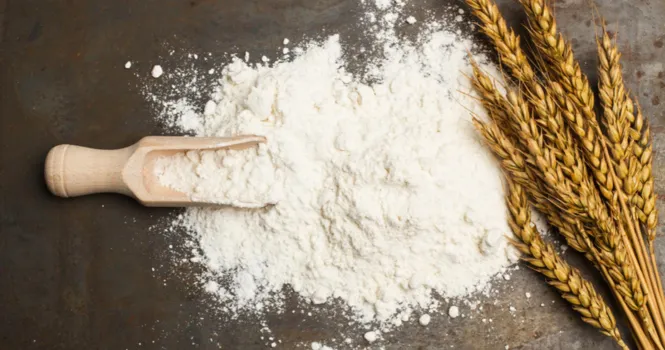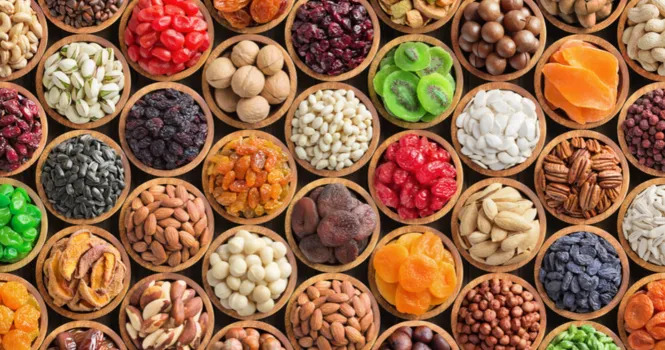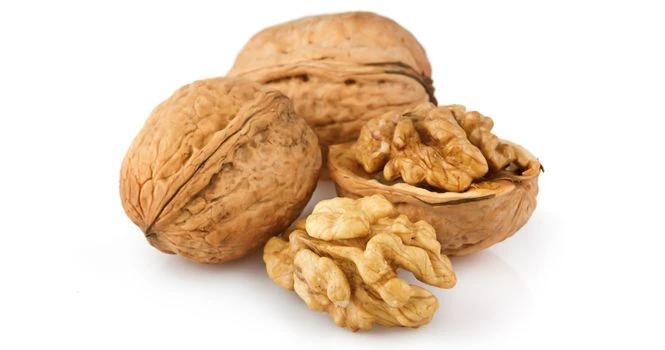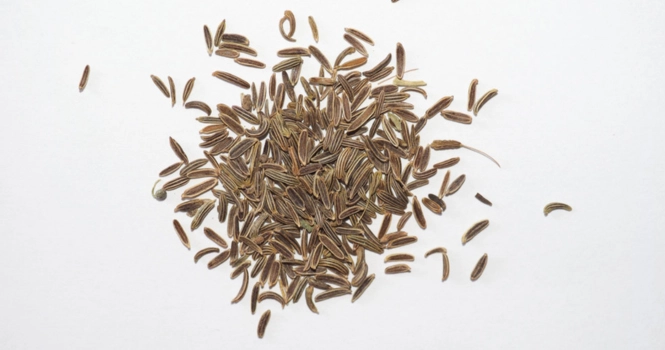Does Protein Powder Make You Gain Weight
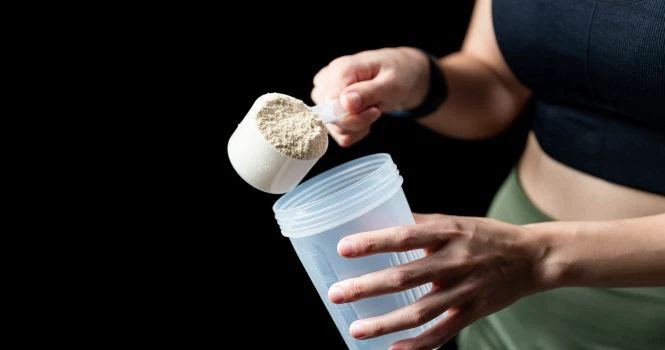
We get our daily protein requirement from food, either from animal or plant sources. BUT,
How is Protein from animal or Plant sources converted to Powder?
Protein powder is a popular dietary supplement that provides concentrated protein to support muscle growth, recovery, and overall health. The production of protein powder involves several steps, depending on the source of the protein—animal or plant.
Here’s a general overview of how protein powder is made:
1. Protein source selection:
The first step is to choose the protein source. Common sources include whey (a byproduct of cheese production), casein (milk protein), soy, pea, hemp, and rice.
2. Extraction:
The protein is extracted from the source material through various methods, depending on the type of protein. For example, whey protein is extracted from liquid whey, which is a byproduct of cheese production. The liquid is typically pasteurized and then subjected to microfiltration or ultrafiltration to separate the protein from fats, lactose, and other impurities.
3. Concentration:
The protein extract is then concentrated to increase the protein content. This can be done through various methods, including evaporation or additional filtration. At this stage, the protein concentrate may contain around 60-80% protein.
4. Drying:
The concentrated protein is then spray-dried to create a fine powder. During this process, the protein solution is atomized into tiny droplets, which are then rapidly dried by hot air, resulting in a powder form.
5. Purification:
The protein powder may undergo additional purification steps to remove impurities and achieve a higher protein content. For example, it can be subjected to ion exchange or hydrolysis, which can increase the protein content to around 90% or higher.
6. Flavoring and additives:
Finally, the protein powder is mixed with various ingredients to improve its taste, texture, and mixability. These ingredients may include natural or artificial flavors, sweeteners, thickeners, and stabilizers. Some protein powders may also include added vitamins and minerals for enhanced nutritional value.
7. Packaging:
The finished protein powder is then packaged into containers, such as tubs or bags, and is ready to be distributed to consumers.
It’s essential to note that the specific process for making protein powder can vary depending on the manufacturer and the type of protein source used.
Now that you have an idea of the basic understanding of how protein powder is made.
Let’s see,
Composition of Protein Powder
| Component | Description | Range (per serving) |
| Protein | The primary component derived from sources like whey, casein, soy, pea, hemp, or rice. | 60% – 95% or more |
| Carbohydrates | An additional source of energy found in some protein powders. | 1 – 2 grams to 10+ grams |
| Fats | Minimal fat content, with some plant-based options containing healthy fats like omega-3 and omega-6 fatty acids. | 0.5 – 3 grams |
| Fiber | Present in plant-based protein powders, aids in digestion and gut health. | 1 – 10 grams |
| Vitamins and minerals | Fortified in some protein powders to enhance nutritional value, may include essential micronutrients like vitamin D, calcium, iron, and magnesium. | Varies |
| Flavoring and additives | Added to improve taste, texture, and mixability; can include natural or artificial flavors, sweeteners, thickeners, and stabilizers. | Varies |
| Amino acids | Added to some protein powders to support muscle recovery and growth, such as branched-chain amino acids (BCAAs) or glutamine. | Varies |
| Calories | The total energy content of the protein powder, derived from the combination of protein, carbohydrates, and fats. Calories per serving can vary depending on the specific formulation and ingredients used. | Typically 80 – 200+ calories |
Types of Protein Powder
| Type of Protein Powder | Source | Complete Protein | Calories per Serving (approx.) | Serving Size (approx.) |
| Whey Protein | Milk (Cheese byproduct) | Yes | 100 – 150 | 25 – 30 grams |
| Casein Protein | Milk | Yes | 100 – 150 | 25 – 30 grams |
| Soy Protein | Soybeans | Yes | 90 – 120 | 20 – 25 grams |
| Pea Protein | Yellow Peas | No | 100 – 130 | 25 – 30 grams |
| Hemp Protein | Hemp Seeds | No | 110 – 140 | 25 – 30 grams |
| Rice Protein | Brown Rice | No | 100 – 120 | 25 – 30 grams |
| Egg Protein | Egg Whites | Yes | 100 – 120 | 25 – 30 grams |
| Blended Protein Powders | Various | Varies | 100 – 200 | 25 – 30 grams |
Note: A complete protein is a protein source that contains all nine essential amino acids in sufficient quantities. Essential amino acids are the building blocks of proteins that our bodies cannot synthesize, so we must obtain them through our diet. These nine essential amino acids are histidine, isoleucine, leucine, lysine, methionine, phenylalanine, threonine, tryptophan, and valine.
Now that you know the details of Protein Powder, let’s see
Does Protein Powder Make You Gain Weight?
Protein powder itself does not directly cause weight gain. However, consuming excessive calories, including those from protein powder, can contribute to weight gain if it results in a calorie surplus (consuming more calories than you burn).
Protein powders are primarily used to supplement dietary protein intake, support muscle growth, and aid in recovery. They can be beneficial for individuals who struggle to consume enough protein through their regular diet, such as athletes, bodybuilders, or vegetarians/vegans.
When used appropriately, protein powder can support muscle growth, which may lead to a healthy increase in weight. However, it’s essential to maintain a balanced diet and consume protein powder as part of an overall nutrition plan.
If you’re looking to gain muscle mass without gaining excessive fat, it’s crucial to combine your protein supplementation with regular resistance training and a well-balanced diet. On the other hand, if you’re trying to lose weight, make sure to consume protein powder within your daily calorie limit while maintaining a balanced diet and engaging in regular physical activity.
Frequently Asked Questions
Can Whey Protein increase Weight?
Whey protein can contribute to weight gain if consumed in excess and not balanced with physical activity, just like any other source of calories. However, it is important to understand the context of its consumption and the overall diet and exercise plan.
Whey protein is often used as a supplement to help increase muscle mass and promote muscle recovery after workouts. When combined with regular resistance training and a well-balanced diet, whey protein can help support muscle growth, which may result in a healthy increase in weight. This is because muscle tissue weighs more than fat tissue.
If you consume whey protein without engaging in regular exercise or resistance training, it may not have the desired effects on muscle growth. Additionally, if you consume excessive amounts of whey protein without considering your total daily calorie intake, it could lead to a calorie surplus and result in unwanted weight gain in the form of fat.
To use whey protein effectively for your goals, it’s crucial to:
- Engage in regular exercise, including resistance training, to promote muscle growth.
- Consume a well-balanced diet that provides adequate calories, macro and micronutrients.
- Monitor your total daily calorie intake, including the calories from whey protein, to ensure you are not consuming more calories than you burn.
Will I get fat if I drink protein shakes without working out?
Drinking protein shakes without working out can potentially lead to weight gain if it results in a calorie surplus. The key factor in weight gain or loss is the balance between daily calorie intake and calories burned through physical activity.
To avoid unwanted weight gain, monitor your calorie intake, maintain a well-balanced diet, and engage in regular physical activity. It’s crucial to consume protein shakes as part of a balanced diet and exercise plan tailored to your specific goals.
Which Protein Powder is Best for Weight Gain?
The best protein powder for weight gain is one that provides a higher calorie content and a balanced blend of protein, carbohydrates, and healthy fats. This combination can help support muscle growth and provide additional calories needed for weight gain. Some options to consider include:
1. Weight Gainer Protein Powders:
These products are specifically formulated for weight gain, containing a higher calorie content and a mix of proteins, carbohydrates, and fats. They often include whey protein, casein protein, or a blend of different protein sources. Additionally, they may contain complex carbohydrates, healthy fats, and added vitamins and minerals.
2. Whey Protein:
Whey protein is a popular choice for weight gain due to its rapid absorption and high biological value. It provides a complete amino acid profile, supporting muscle growth and recovery. Opt for a whey protein concentrate, as it generally contains more carbohydrates and fats compared to whey protein isolate, resulting in higher calorie content.
👉 Want to know exactly what’s in one scoop of whey protein? Here’s a breakdown of protein, calories, and more to help you use it effectively based on your fitness goals.
3. Blended Protein Powders:
These powders contain a mix of various protein sources, such as whey, casein, soy, and others. Blended protein powders can offer a more balanced amino acid profile and varying rates of digestion, making them suitable for supporting muscle growth and weight gain.
When choosing a protein powder for weight gain, it’s essential to consider your dietary preferences, allergies, or intolerances. Make sure to read the label and choose a product with a higher calorie content and a balanced nutritional profile. Remember, the protein powder should be consumed as part of a well-balanced diet and combined with regular resistance training to support healthy weight gain and muscle growth.
What are side effects of protein powder?
While protein powder is generally safe for most individuals when consumed as part of a balanced diet, some potential side effects may occur, particularly if overused or if an individual has specific allergies or sensitivities.
Some side effects include:
1. Digestive issues: Some individuals may experience bloating, gas, stomach cramps, or diarrhea due to lactose intolerance or sensitivity to certain protein sources or additives in the powder.
2. Allergic reactions: Some people may have allergies to specific protein sources, such as whey, casein, soy, or egg. Symptoms can range from mild to severe, including skin rashes, hives, swelling, or difficulty breathing.
3. Kidney stress: Consuming excessive amounts of protein over an extended period may put stress on the kidneys, as they work to filter the waste products of protein metabolism. People with pre-existing kidney issues should consult a doctor before increasing protein intake significantly.
4. Liver stress: Similar to the kidneys, the liver also processes protein waste products. Excessive protein consumption may stress the liver, especially in individuals with pre-existing liver conditions.
5. Nutrient imbalances: Relying too heavily on protein powder for daily nutrient intake can lead to an imbalance in overall nutrition. It’s crucial to consume a well-rounded diet with a variety of whole foods to ensure adequate vitamins, minerals, and other essential nutrients.
6. Weight gain: Consuming excessive protein powder can contribute to a calorie surplus, potentially leading to unwanted weight gain in the form of fat if not balanced with physical activity and a proper diet.
To minimize the risk of side effects, choose a protein powder that aligns with your dietary preferences and needs, and consume it in moderation as part of a well-balanced diet. If you have pre-existing medical conditions or concerns about protein supplementation, consult a healthcare professional for guidance.
Should I drink protein shakes everyday?
Whether you should drink protein shakes every day depends on your individual needs, goals, and overall diet. Protein shakes can be a convenient and effective way to supplement your daily protein intake, especially if you have difficulty meeting your protein requirements through whole foods alone.
Here are some factors to consider when deciding if you should drink protein shakes daily:
1. Protein requirements: Your daily protein needs depend on factors such as age, gender, weight, activity level, and fitness goals. If you struggle to meet these requirements through whole foods, protein shakes can be a helpful addition to your daily diet.
2. Fitness goals: If you are engaged in regular strength training or endurance sports, your protein requirements might be higher than the average person. In this case, consuming protein shakes daily can support muscle recovery, growth, and maintenance.
3. Dietary preferences: Vegetarians, vegans, or individuals with specific dietary restrictions might find it challenging to meet their protein needs through food alone. Protein shakes can help bridge this gap by providing a convenient and concentrated source of protein.
4. Convenience: Protein shakes can be a quick and easy way to increase your protein intake, particularly when you’re short on time or need a portable option.
However, it’s essential to remember that protein shakes should not replace whole foods entirely. A well-balanced diet with a variety of whole foods should be the foundation of your nutrition plan, providing essential vitamins, minerals, and other nutrients.
Is it OK to drink whey protein without working out?
It is generally OK to drink whey protein without working out, as long as it is consumed as part of a balanced diet and within your daily calorie needs. Protein is an essential nutrient that supports various bodily functions, including muscle maintenance, immune function, and tissue repair.
Whey protein can be especially beneficial for certain individuals who may have higher protein requirements or difficulty meeting their daily protein needs through whole foods alone, such as:
1. Older adults: Age-related muscle loss can be mitigated with adequate protein intake, and whey protein can provide an easily digestible and convenient protein source.
2. Vegetarians and vegans: Those following plant-based diets may find it challenging to get enough complete protein sources, so adding whey protein can help ensure adequate protein intake.
3. Individuals with increased protein needs: Certain medical conditions, periods of recovery, or other factors may necessitate higher protein intake, making whey protein a useful supplement.
Is whey protein good for skinny guys?
Whey protein can be beneficial for skinny individuals looking to gain weight or build muscle mass, as it provides a convenient and easily digestible source of high-quality protein. Whey protein contains a complete amino acid profile, which is essential for supporting muscle growth and recovery.
For skinny individuals aiming to gain weight or build muscle, it’s crucial to combine whey protein supplementation with the following:
1. Increased calorie intake: Consuming more calories than you burn is necessary for weight gain. Make sure to include nutrient-dense foods and maintain a well-balanced diet to support healthy weight gain.
2. Balanced macronutrients: In addition to protein, ensure that you consume an appropriate balance of carbohydrates and healthy fats, as these provide energy and support various bodily functions.
3. Resistance training: Engage in regular strength training exercises to stimulate muscle growth and make the most of the increased protein intake.
4. Consistency: Building muscle and gaining weight takes time and requires consistency in both diet and exercise.
It’s essential to remember that it should be consumed as part of a well-rounded diet and in conjunction with regular resistance training. If you have concerns or specific dietary requirements, consult a healthcare professional or a registered dietitian for personalized advice.
Who should not take whey protein?
There are certain individuals who should avoid or be cautious when considering whey protein supplementation:
1. Individuals with a milk allergy or lactose intolerance: Whey protein is derived from milk, and people with a milk allergy may experience severe allergic reactions. For those with lactose intolerance, whey protein isolate might be better tolerated, as it contains less lactose than whey protein concentrate.
2. People with kidney disease: Excessive protein intake can put additional stress on the kidneys, as they filter and process the waste products of protein metabolism. Individuals with kidney disease or a history of kidney problems should consult their doctor before increasing their protein intake, including whey protein supplementation.
3. Those with liver disease: The liver also processes protein waste products. Excessive protein consumption may stress the liver, especially in individuals with pre-existing liver conditions.
4. Individuals prone to certain metabolic disorders: Some rare metabolic disorders, such as phenylketonuria (PKU), require a strict protein-restricted diet. People with these conditions should avoid whey protein and other protein supplements.
Consult your Doctor if you have any of the above or before taking it.
When should I take protein powder?
The timing of protein powder consumption depends on your individual goals, preferences, and daily schedule.
However, there are certain times when taking protein powder can be particularly beneficial:
1. Post-workout: Consuming protein within 30 minutes to 2 hours after a workout can promote muscle recovery and growth. This is known as the “anabolic window” when muscles are more receptive to the nutrients required for repair and growth. A protein shake can provide a quick and convenient source of protein to support this process.
2. Pre-workout: Some individuals prefer to consume protein before a workout to provide a steady supply of amino acids during exercise, which can help minimize muscle breakdown and support muscle growth.
3. Between meals: Consuming protein powder between meals can help to curb hunger and maintain stable blood sugar levels, as well as support a consistent supply of amino acids to your muscles throughout the day.
4. As a meal replacement: Protein powder can be used as a meal replacement when you’re short on time or don’t have access to a complete meal. However, it’s important to ensure that the protein shake also contains a balance of carbohydrates, healthy fats, and essential micronutrients.
5. Before bed: Consuming a slow-digesting protein source, such as casein protein or a blended protein powder, before bed can provide a steady supply of amino acids to your muscles during sleep, which can help promote muscle recovery and growth.
Is it better to mix protein with milk or water?
Mixing protein powder with milk or water depends on your personal preference, goals, and dietary requirements. Milk can provide additional calories, protein, and nutrients, making it a better option for those looking to gain weight or increase their calorie intake. Water is a suitable option for those who want to limit calories or are lactose intolerant.
Which protein is best for beginners?
For beginners, whey protein is often recommended due to its high biological value, complete amino acid profile, and rapid absorption rate. It supports muscle growth and recovery and is easily digestible. However, the best protein for you also depends on your dietary preferences, allergies, and intolerances.
Can underweight people go to the gym?
Yes, underweight people can go to the gym. Engaging in regular exercise, particularly strength training, can help underweight individuals build muscle and gain healthy weight. It’s essential to combine exercise with a well-balanced, calorie-dense diet to support weight gain and overall health.
Are weight gainers safe?
Weight gainers are generally safe when consumed as part of a balanced diet and within appropriate calorie limits. They can be helpful for individuals who struggle to gain weight or consume enough calories through whole foods alone. However, relying too heavily on weight gainers may lead to nutrient imbalances, so it’s essential to maintain a well-rounded diet.
Does Protein Powder make you gain Water Weight?
Protein powder itself does not typically cause significant water weight gain. However, an increase in overall calorie intake or a high-sodium diet may contribute to temporary water retention.
Does Protein Powder make you gain Muscle?
Protein powder can support muscle gain when combined with regular resistance training and a well-balanced diet. It provides the necessary amino acids for muscle growth and recovery but is not solely responsible for muscle gain.
Does Protein Powder make you fart?
Some people may experience gas or bloating when consuming protein powder, particularly if they are sensitive to specific protein sources or additives. This can vary depending on the individual and the type of protein powder used.
Does Protein Powder Make You Constipated?
Protein powder may contribute to constipation in some individuals if it displaces fiber-rich foods in their diet or if they are sensitive to certain ingredients. To minimize the risk of constipation, ensure you consume adequate fiber and maintain proper hydration alongside protein supplementation.
![]()





